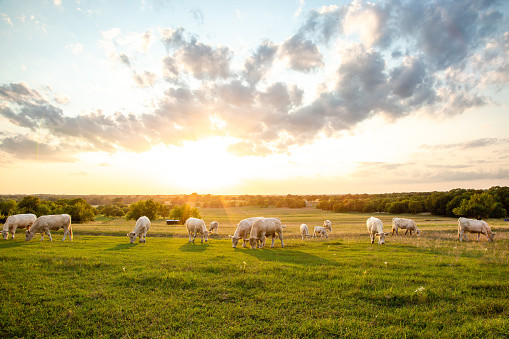
A recent study states that the deterioration of the Colombian Amazon over the past 40 years has been caused by cattle ranching rather than cocaine.
Research reveals that in 2018, the quantity of forest removed for the cultivation of coca, the main component of cocaine, was just 1/60th of that used for livestock. However, previous administrations have cited environmental concerns to justify stepping up their assault on the green shrub.
The study's conclusions support conservationists who have long argued that Colombia's approach to protecting the Amazon, which is frequently focused on halting coca cultivation, is misplaced, The Guardian reported.
"We want to finally eradicate this narrative that coca is the driver of deforestation," said Pablo Murillo-Sandoval at the University of Tolima, who led the study.
Once the Revolutionary Armed Forces of Colombia (Farc) reached a historic peace accord with the government in 2016 and put down their weapons, deforestation spiked.
Land-grabbers profited as rebels came out of the jungle. Deforestation reached a record high of 219,973 hectares (543,565 acres) in 2017, up 23% from the previous year.
Then-president Iván Duque used the environmental destruction caused by coca cultivation to justify stepping up military action against coca farmers.
Prohibited from spraying coca crops with glyphosate after the chemical was banned in 2015 for health concerns, the Duque government sent in choppers and armed troops into the Amazon rainforest, sometimes into deadly confrontations with coca farmers.
Yet while cattle ranches cleared more than 3m hectares (7.4m acres) of Amazon rainforest in 2018, coca's impact was negligible.
In 2018, the most recent year included in the study, just 45,000 hectares (111,200 acres) were removed for coca.
Murillo and his coworkers were able to distinguish between the activities on a large scale from 1985 to 2019 using a deep learning algorithm to identify between land utilized for coca and livestock.
"We have always contested the government's argument that coca was driving deforestation but lacked the evidence," said Angelica Rojas, liaison officer for Guaviare state at the Foundation for Conservation and Sustainable Development, a Colombian environmental thinktank.
The study adds to the mounting evidence that Colombia's "war on drugs" has failed to stop coca production and, in some circumstances, may have even made it worse despite the loss of many lives and the expenditure of billions of dollars.
According to Murillo, farmers who have their crops destroyed simply construct new plots a few kilometers deeper in the forest canopy.
The authors claim that while the government has been playing whack-a-mole with coca producers, the main cause of deforestation, cattle rearing, has been allowed to engulf enormous tracts of land.
Biodiverse tropical rainforests have been incentivized to be turned into desolate fields due to flaws in Colombian land regulations. Landowners must prove that 75% of their plots are productive in order for their deeds to be recognized, and farmers find it much easier to utilize cows than crops, according to Carlos Devia, a forest engineer at Bogota's Javeriana University who was not involved in the study.
"Ranching is the easiest way to show you're using land, as it's unregulated. You could have 100 hectares of land and just throw 10 cows in there, whereas for potatoes or corn only a hectare would require a year of great work," Devia said.
Many times, landless farmers destroy a few hectares of rainforest and illegally sell them to members of criminal gangs who combine several small lots into large expanses of dead, barren pasture.
Colombian President Gustavo Petro, who took office in August last year, is proposing a U-turn on Colombia's failed anti-narcotics strategy.
Petro, a former member of the defunct M-19 rebel group, has turned the focus away from forced coca eradication and is buying up millions of hectares of land to give to farmers.
© 2025 Latin Times. All rights reserved. Do not reproduce without permission.



